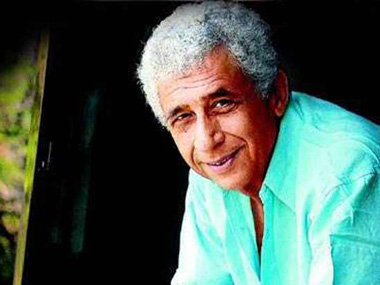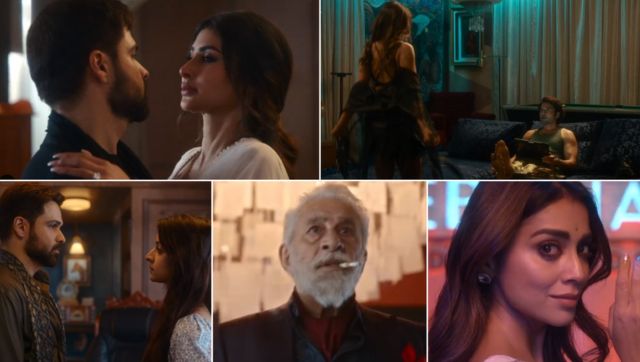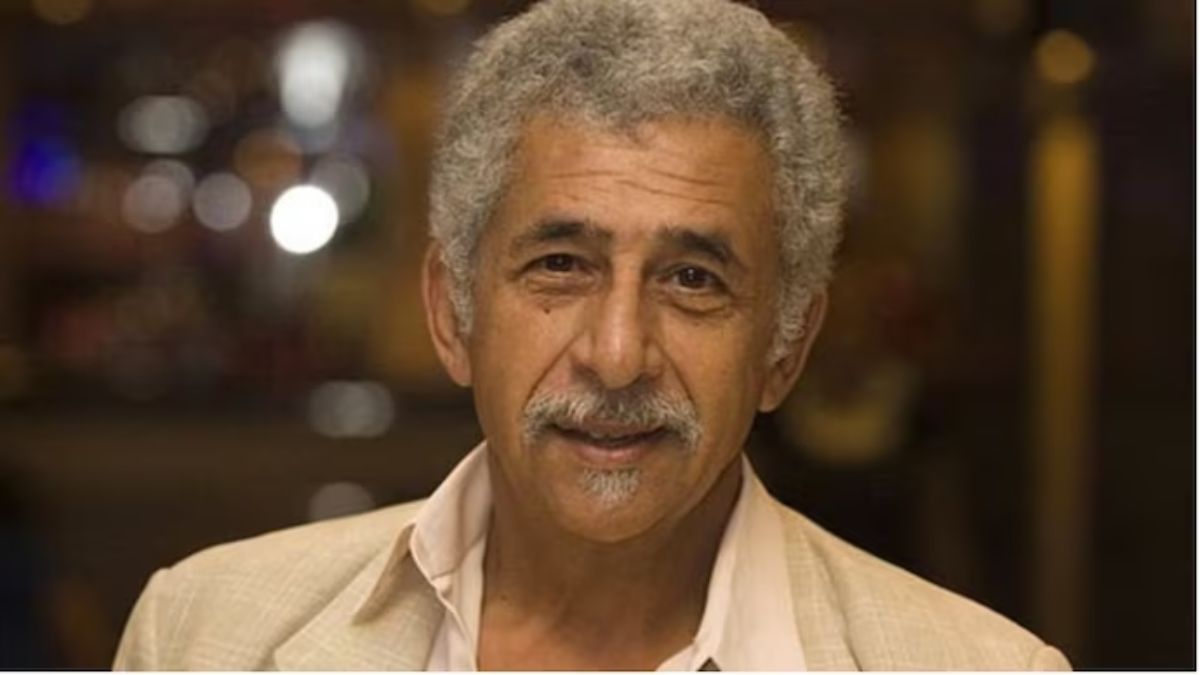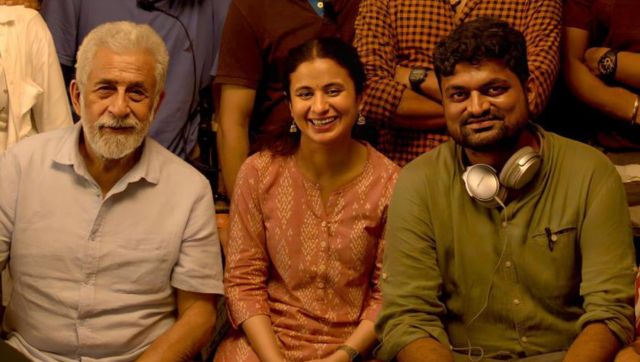Naseeruddin Shah is the latest in the long line of actors who have decided to chronicle their lives. The veteran actor’s autobiography joins Waheeda Rehman’s biography Conversations with Waheeda and Dilip Kumar’s autobiography Dilip Kumar: The Substance and The Shadow as this year’s required reading for cinephiles. Shah’s autobiography, And Then One Day, has the actor recounting his life from childhood to the beginning of his career in Bollywood. The book ends with an account of his marriage to the actress Ratna Pathak Shah and his daughter (from his first marriage) returning to India. Walking down memory lane, Shah recounts episodes from the actor’s years at Aligarh Muslim University (AMU), Delhi’s National School of Drama (NSD) and the Film and Television Institute at Pune (FTII). The book details some stormy romances.
Here are eight things that we learnt from his autobiography:
1. It is not ghost-written:
In an interview with HT Brunch , Shah speaks about having thought about an autobiography for almost 10 years. He penned down his thoughts occasionally during this period until he finally came up with 100-odd pages. What had started as an amusing pastime had clearly grown into something much deeper. He then presented the unfinished version to his friend, historian Ramchandra Guha, who encouraged Shah to complete it and send it to a publication house.
2. The actor did not have a happy relationship with his father:
Shah shared a difficult relationship with his father, Aley Mohammed Shah. Like most parents, the actor’s father struggled to understand his son’s poor academic performance. Shah tells HT Brunch that his father hoped for him to ‘do’ something and ‘become’ someone. Further complicating their relationship was the fact that although Shah’s father never raised a finger on him, he expressed his stern disapproval vocally. Shah and his father’s relationship soured when 19-year-old Shah plunged into the world of theatre at Aligarh Muslim University, instead of concentrating on academics.
With the passage of time and the birth of his own children, Shah has gained a better understanding of his father. He says that he thought that his father was indifferent to him, not realizing that his father must have felt that Shah was indifferent to him as well.
3. Shah was only 19 when he got married:
As a teenager, the actor entered into a deeply passionate relationship with Purveen, a 34-year-old Pakistani who was studying medicine at Aligarh Muslim University at that time. Purveen was encouraging and supportive of Shah’s acting dreams and he credits her presence in his life for “determining my direction and finding my spot”. The couple married on November 1, 1969 but the relationship ended soon after Shah got admission to the National School of Drama in Delhi and left Aligarh. Meanwhile, ten months after their marriage, Purveen gave birth to the couple’s first child, Heeba. The actor calls himself “insecure” and “ill-adjusted” during that time and and says this might have been one reason why his relationship with Purveen did not last.
4. He did not have a relationship with his daughter for the first 12 years of her life:
Shah’s autobiography has been described as’ unsparingly honest’ and ‘candid’ by critics but you never really understand the impact of those words till you get to the section where he describes his relationship with his daughter, Heeba. Shah talks about how he resented the arrival of the baby as he was too involved with his dazzling new life at NSD. He began to view both marriage and fatherhood as burdens and soon stopped writing, phoning or visiting Purveen. She eventually left for London with the baby and Shah would not see his daughter for the next 12 years.
5. Shah was a pothead:
The actor credits marijuana with making him more intelligent. He admits to being pleasantly stoned at many phases in his life. Perhaps aware of the controversy that surrounds the consumption of ganja, he says that he would not advocate it to anyone. However, he says that smoking pot has always worked out well for him in the past as it gave a certain clarity to his thoughts. Kudos to Shah for approaching the topic without discomfort or shame.
6. He calls Ratna Pathak Shah the “one true love of his life”:
Shah fell in love with his wife at first sight. He was talking with the legendary theatre director Satyadev Dubey about a play at a roadside sugarcane juice stall when he first saw Ratna Pathak. He found it hard to take his eyes off the striking young woman and found that she was also a part of Dubey’s play. At that time, Shah was recovering from a rough break-up and he fell for Pathak immediately.
7. He actively lobbied for the role of Mohandas Gandhi in Richard Attenborough’s Gandhi:
When Richard Attenborough announced his desire to make a film about MK Gandhi, Shah was one of the many young Indian actors who jumped at the chance to play the lead role. He was convinced that he could pull off the role. Unfortunately, during his audition in London, Shah found out that Ben Kingsley had already been cast as Gandhi and the whole process of tom-tomming that Shah was being tested was only to delude the Indian press into thinking that an Indian was being cast as Gandhi. It would soften the blow when it was announced that an Englishman (Kingsley) was cast in the titular role. Shah calls it a “pungent irony” that the one role he actively chased, eluded him completely.
8. He dislikes being called a method actor:
Shah wanted to sing, dance and fight the bad guys like other commercial actors have done, but found that he was quite terrible at it. He says that he never chose to do off-beat films over commercial films and that he was already catalogued as a ‘serious actor’ before he could really do any mainstream cinema. He even challenged the ‘serious’ tag that was given to him by acting in films like Tehelka, where he played a character dressed in drag. Fortunately or unfortunately, he never felt truly comfortable in the skin of a mainstream actor though he admires great actors like Amitabh Bachchan and Dilip Kumar for the ease with which they did ‘synthetic drama’.
And Then One Day is being published by Hamish Hamilton, an imprint of Penguin.


)




)
)
)
)
)
)
)
)